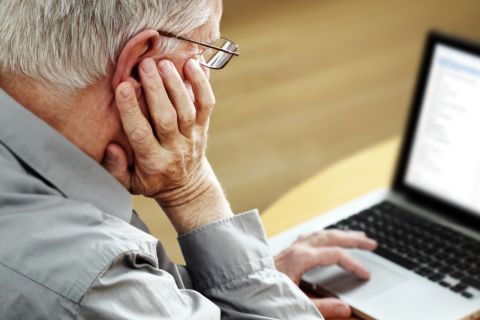No fresh fruit, stockpiled petrol, insurance not hugs: Experiences of the cost-of-living crisis
Recent media coverage of Australians’ expenditure patterns suggested older people are spending up big on the back of rising investment returns. But not every older Australian is so fortunate.

Key points
- New research from National Seniors reveals heartbreaking stories about cost-of-living impacts on older people.
- Over 2,300 people shared their experiences through written comments answering National Seniors Social Survey questions.
- People wrote about cutting back expenditure to make ends meet, creative ways to save money, or the difficulties they faced living on a low income.
A research report released this week by National Seniors Australia shows many older people are feeling the pain, and some are really struggling.
The report is based on the ‘Cost of Living’ module in the 2023 National Seniors Social Survey (NSSS) of 5,608 Australians aged 50 and over.
More than 2,300 respondents wrote about their personal experiences with the cost-of-living crisis in the form of one or more free text comments.
Some of these revealed the extremely difficult situations older people face on a daily basis, especially when reliant on a pension, renting, and/or paying off a mortgage.
For example, a 72-year-old woman from New South Wales commented, “After everything is taken from my pension, I’m lucky if I have $60 and that is my food money for two weeks.”
Similarly, a 75-year-old woman from Queensland said, “I currently pay $740 per fortnight rent out of a single pension and finding it hard to feed myself.”
Changing food shopping and diet is a common way older people have saved money. Fresh fruit, vegetables, and meat have been among the items sacrificed. At the extreme end, the survey showed some people have been forced to sell major assets such as their car or even their house just to survive.
As might be expected, costs that aren’t critical to daily life but make it more liveable can be the first to go for many people.
Worryingly, some respondents are cutting general insurance to stay afloat, while others have had to cut their health insurance. This is concerning because it limits choice and makes them reliant on the stretched public health system.
A 71-year-old Queensland woman wrote, rather heartbreakingly, that she had “dropped visits to family because of increased private health insurance, had to make a choice: cuddle great grandchildren or afford medical treatment”.
Older people are also strategic, finding inventive ways to avoid expenditure when belts are tightened.
One respondent described how they saved money by collecting green waste from a local greengrocer, some of which was rescued for meals and the rest used as compost for home-grown food. Others spoke of hunting for free or cheap activities or using vouchers for movies or meals.
One of the survey questions asked about managing fuel costs. Respondents shared ways they have coped with increases, including driving only when necessary, bundling trips, buying on cheap days, swapping cars for motorbikes, and even stockpiling petrol.
Some survey respondents told us just how precarious their situation is, or how despondent they are about their lives. Many expressed frustration at never being able to keep up with expenses while others were dependent on younger family members to subsidise their living costs. Cost-of-living increases had tipped some older people into poverty and risk of homelessness.
A 69-year-old Queensland woman who lives in low-cost or free camping areas told us, “[I] could never be able to rent a house or flat. No health insurance. Just waited 570 days for orthopaedic appointment. Minimal food. Do not drink alcohol or smoke. Drink water and tea. Use only 1 teaspoon of tea leaves per day.”
These experiences and others told by NSSS respondents are a timely reminder that some people’s circumstances are not captured well by numbers and need highlighting in other ways.
Thank you to everyone who contributed responses to the NSSS ‘Cost of Living’ module and so generously shared their stories.
Download the report, Older People’s Responses to the Rising Cost of Living, here.
If this article or the accompanying report causes you distress, please seek support through one of these services:
Lifeline – 24/7 crisis support and counselling.
Telephone support and counselling 24 hours a day, 7 days a week: 13 11 14.
Crisis text service 24 hours a day, 7 days a week: 0477 13 11 14.
Online chat service 24 hours a day, 7 days a week: Lifeline Crisis Chat.
Suicide Call Back Service – 24/7 crisis counselling if you are feeling suicidal.
Telephone counselling 24 hours a day, 7 days a week: 1300 659 467.
Online chat 24 hours a day, 7 days a week: Suicide Call Back Service.
Video chat by appointment, details on website.
Friendline – 24/7 non-crisis service for anyone feeling lonely or who just wants to chat.
Telephone chat 10am-8pm, 7 days a week: 1800 424 287.
Online chat 6pm-8pm Mon-Fri (at the page, select region): friendline.org.au.
Beyond Blue – short-term counselling, information and referrals about depression and anxiety.
Telephone advice 24 hours a day, 7 days a week: 1300 22 4636.
Website, including access to online chat: beyondblue.org.au.
QLife – support and information for LGBTIQ+ people of all ages.
Telephone support 3pm-midnight: 1800 184 527.
Webchat service 3pm-midnight: QLife Chat.






